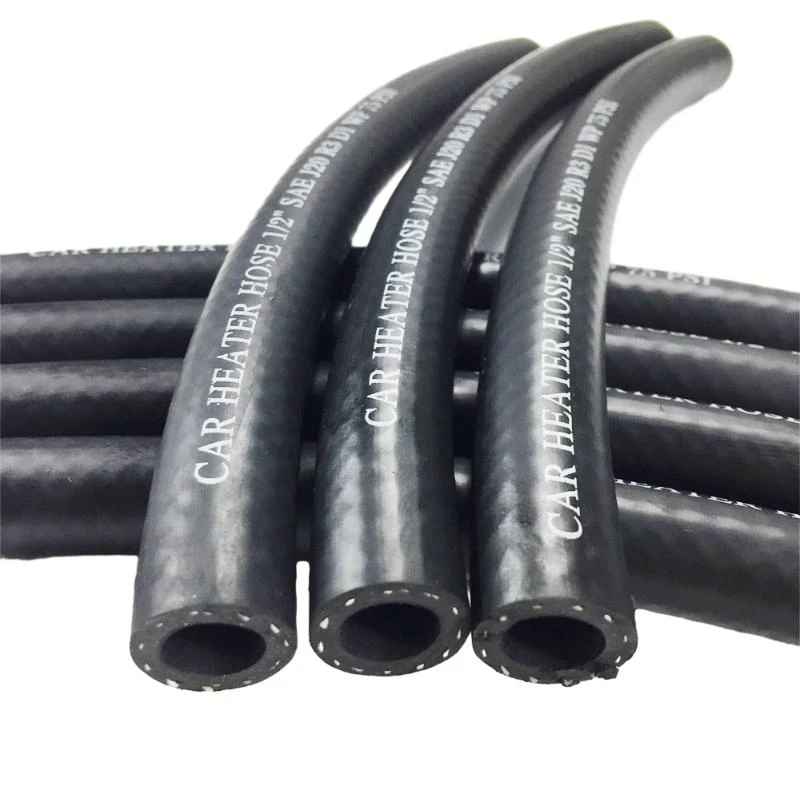High-Performance Fuel Hose for Extreme Heat Resistance and Durability
Aug . 20, 2024 21:37 Back to list
High-Performance Fuel Hose for Extreme Heat Resistance and Durability
The Importance of Heat Resistant Fuel Hoses in Automotive and Industrial Applications
In various automotive and industrial applications, fuel hoses play a critical role in the transportation of fuel and other fluids. Among the different types of fuel hoses available, heat resistant fuel hoses are particularly essential. Designed to withstand elevated temperatures and harsh operating conditions, these hoses ensure safety, efficiency, and optimal performance in vehicles and machinery.
The Need for Heat Resistance
Heat resistant fuel hoses are engineered to withstand extreme temperatures generated by the engine and the surrounding environment. Internal combustion engines can reach high operational temperatures, and continuous exposure to heat can lead to hose degradation. Traditional fuel hoses made from standard rubber or plastic materials can soften, swell, or become brittle when exposed to excessive heat, leading to leaks or ruptures, which can result in severe safety hazards such as fires or explosions.
By using heat resistant materials, manufacturers ensure that the hoses maintain their structural integrity and functionality even under rigorous conditions. High-performance materials, such as fluoropolymer, silicone, and reinforced rubber composites, are commonly used to construct these hoses, providing enhanced resistance to thermal degradation and chemical exposure.
Applications in Automotive Industry
In the automotive industry, heat resistant fuel hoses are crucial for fuel delivery systems. They are often used in the fuel lines of vehicles, capable of withstanding the heat produced by the engine while delivering fuel from the tank to the injectors. The reliability of these hoses directly impacts engine performance. If a fuel hose fails, the consequences could be catastrophic, leading to engine failure or even vehicle fires.
Moreover, as moderns vehicles evolve, incorporating turbocharged engines and hybrid systems, the demands on fuel hoses become even more stringent. Heat resistant fuel hoses offer the necessary resilience to cope with these advanced technologies, making them an indispensable part of modern automotive design.
heat resistant fuel hose

Industrial Applications
Beyond automotive use, heat resistant fuel hoses are also vital in various industrial applications. Machinery and equipment used in high-temperature environments, such as power plants, oil refineries, and chemical processing facilities, rely on these specialized hoses for safe fluid transfer. The hoses must meet industry standards for both temperature and pressure to ensure safe operation.
In addition, heat resistant hoses are often used in aviation and marine applications where safety is paramount. The rigorous regulatory requirements in these industries necessitate the use of reliable materials that can withstand high temperatures without failing.
Benefits of Using Heat Resistant Fuel Hoses
One of the most significant advantages of heat resistant fuel hoses is their enhanced safety profile. By significantly reducing the risk of leaks and ruptures, these hoses protect not only the engine and surrounding components but also the lives of passengers and operators. Furthermore, they contribute to overall system efficiency by ensuring a reliable fuel supply under various conditions.
Durability is another key benefit. High-quality heat resistant hoses can last longer than their standard counterparts, reducing maintenance costs and downtime for replacements. Their ability to resist chemical exposure and physical wear makes them suitable for a wide range of fluids beyond fuel, including oils and coolants.
Conclusion
Heat resistant fuel hoses are a crucial component in both automotive and industrial sectors, enhancing safety and efficiency across applications. As technology advances and operational demands increase, the importance of these specialized hoses cannot be overstated. Investing in high-quality heat resistant fuel hoses not only protects equipment and personnel but also contributes to improved performance and reliability in an ever-evolving industrial landscape.
